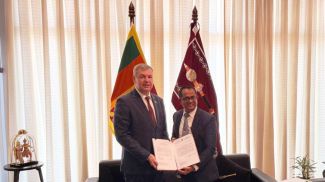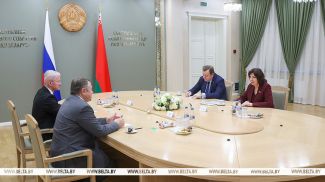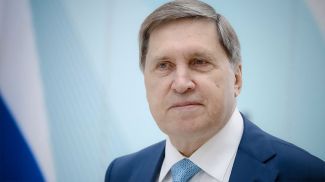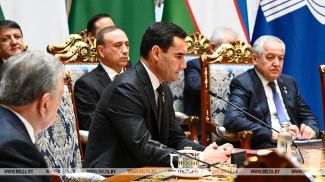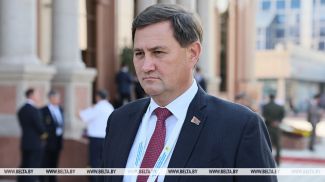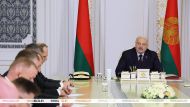
Sergey Naryshkin/RIA Novosti
MINSK, 10 December (BelTA) - The West is ready to go to great lengths to maintain its dominance and may try to provoke a global conflict with its epicenter in Eurasia, Russian Foreign Intelligence Service (SVR) Director Sergey Naryshkin said in an interview with the Razvedchik magazine, TASS learned.
"One of the possible scenarios of the development of events in the medium term is a potential Western attempt to provoke a global armed conflict with an epicenter in Eurasia. You know, this is a proven way for world capital to get out of a crisis," he said.
At the same time, the SVR chief pointed out that it is not only Washington and London that share common values. "New, no less sustainable groups of countries have emerged in the world. Other, more responsible players, who, if united, are capable of countering Anglo-Saxon influence and solving all problems on their own without escalating the global situation into World War III," Naryshkin explained.
"The global prestige of Washington is steadily declining. Even the Americans’ closest allies are turning away from the White House," the SVR chief said. "You wouldn’t believe how many US partners from Asian, African, and Latin American countries have urged us in direct contacts not to stop halfway in the Ukraine conflict," he added.
The United States and Europe are facing a dramatic period of internal strife amid the decline of their power. "Americans and Europeans are still far from returning to their identity. They are likely to face a challenging and dramatic period of internal strife. Later, they will as always blame Moscow for everything. The West finds it rather hard to recognize that its power has waned," the Russian intelligence chief said.
Speaking about the role of Western countries in the future world order, Naryshkin noted that today's "humanity is facing a large number of formidable common challenges, like pandemics, climate change, which leads to global migration, as well as the uncontrolled development of artificial intelligence technologies." "Major regional and world powers need to join forces and find ways to respond to these threats," Sergey Naryshkin said. "The US and Europe, with their entrepreneurial spirit and capacity to innovate, can and should play an active part in these processes and have a worthy place," Naryshkin concluded.
"One of the possible scenarios of the development of events in the medium term is a potential Western attempt to provoke a global armed conflict with an epicenter in Eurasia. You know, this is a proven way for world capital to get out of a crisis," he said.
At the same time, the SVR chief pointed out that it is not only Washington and London that share common values. "New, no less sustainable groups of countries have emerged in the world. Other, more responsible players, who, if united, are capable of countering Anglo-Saxon influence and solving all problems on their own without escalating the global situation into World War III," Naryshkin explained.
"The global prestige of Washington is steadily declining. Even the Americans’ closest allies are turning away from the White House," the SVR chief said. "You wouldn’t believe how many US partners from Asian, African, and Latin American countries have urged us in direct contacts not to stop halfway in the Ukraine conflict," he added.
The United States and Europe are facing a dramatic period of internal strife amid the decline of their power. "Americans and Europeans are still far from returning to their identity. They are likely to face a challenging and dramatic period of internal strife. Later, they will as always blame Moscow for everything. The West finds it rather hard to recognize that its power has waned," the Russian intelligence chief said.
Speaking about the role of Western countries in the future world order, Naryshkin noted that today's "humanity is facing a large number of formidable common challenges, like pandemics, climate change, which leads to global migration, as well as the uncontrolled development of artificial intelligence technologies." "Major regional and world powers need to join forces and find ways to respond to these threats," Sergey Naryshkin said. "The US and Europe, with their entrepreneurial spirit and capacity to innovate, can and should play an active part in these processes and have a worthy place," Naryshkin concluded.





